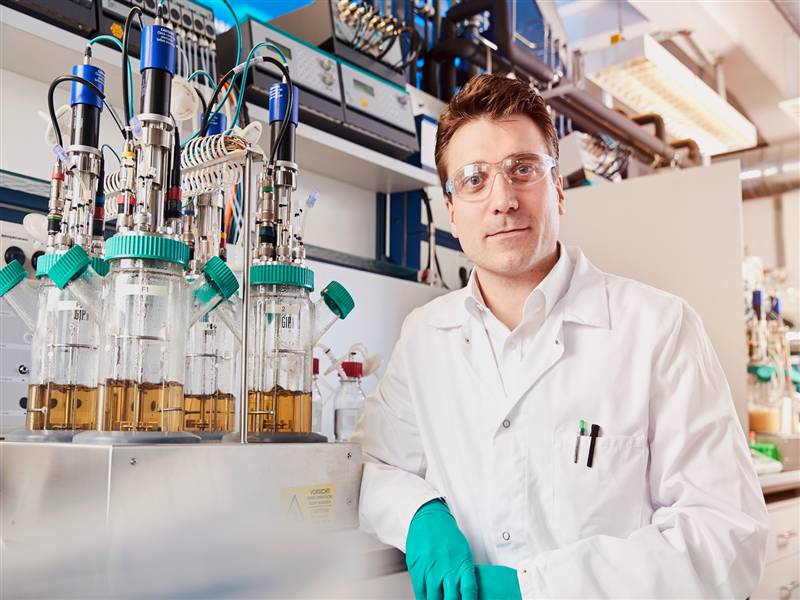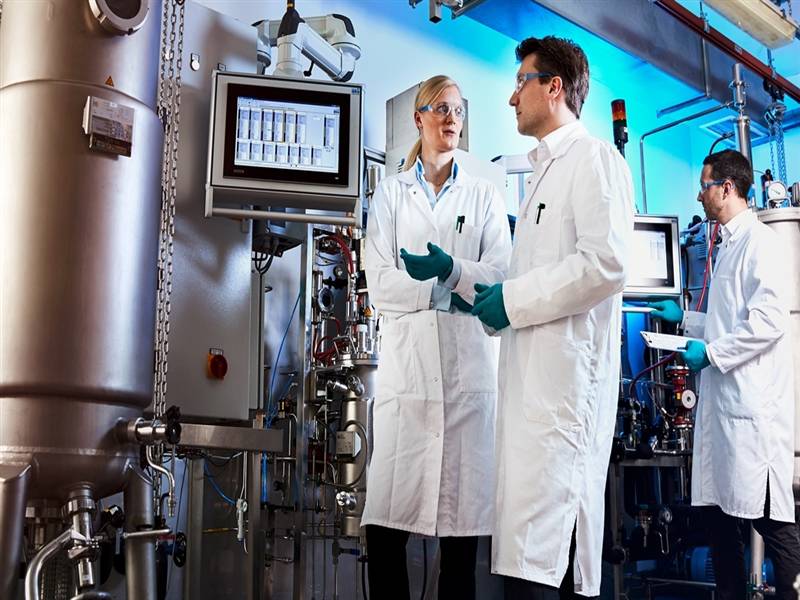Biomass becomes a new raw material for aniline production
Save oil, reduce carbon footprint
A brand new process developed with partners
Covestro has achieved a research breakthrough in the production of plastics from plant-based raw materials by successfully extracting aniline, an important basic chemical, from biomass. This achievement was jointly achieved by Covestro and its partners in the laboratory through a new process. To date, the production of aniline still relies on fossil raw materials. Aniline plays an important role in the chemical industry and is a raw material for numerous products.

Following the success in the laboratory, Covestro plans to further develop the process with partners from industry, academia and research. The first step is to scale up the process to pilot scale, while the ultimate goal is to achieve industrial-scale production of bio-based aniline. If successful, it would be an unprecedented achievement in the chemical industry.
Unprecedented achievement
The annual global aniline output is about 5 million tons, with an average annual growth rate of about 5%. Covestro is the world’s leading aniline producer with a production capacity of about 1 million tons per year. Covestro requires aniline as a precursor in the production of rigid polyurethane foam, a highly efficient insulating material widely used in buildings and refrigeration systems.
“The market is showing great interest in ecologically friendly products made from renewable raw materials. The production of aniline from biomass can help the chemical and plastics industries Reduce dependence on fossil raw materials and reduce the impact of market fluctuations on them. Through this technology, we will continue to pursue the beautiful vision of ‘creating a wonderful world’.”
Dr. Gernot Jöger, project manager at Covestro: “The new process produces aniline from renewable raw materials and significantly reduces CO2 emissions compared to standard technologies. When using products as raw materials, the carbon footprint is also significantly reduced.” In addition, the chemical reactions in the process can be carried out under milder conditions. A comprehensive evaluation of the ecological performance of the process is being carried out by an external agency.
100% carbon content comes from biomass
At present, the industry generally uses pure benzene as a raw material to produce aniline, and pure benzene is a chemical raw material obtained from petroleum. However, pure benzene can be replaced by industrial sugar, and industrial sugar has been mass-produced from raw materials such as feed corn, straw and wood. The newly developed process uses microorganisms as catalysts to first convert industrial sugars into precursors of aniline, which is then obtained through chemical catalysis. “This means that the carbon content in the aniline will come from 100 percent renewable raw materials,” explains Dr. Jöger.

Currently, Covestro is cooperating with the University of Stuttgart, the CAT Catalyst Center of RWTH Aachen University and Bayer to further develop the process. “This dynamic, interdisciplinary team of highly qualified specialists who can provide all the expertise required for the project is the basis for continued success,” says Jöger. The long-term research project will receive support from the German Federal Foods and Two-and-a-half-year financial support from FNR, the project agency of the Ministry of Agriculture (grant number: 22010215).
Covestro already uses renewable raw materials in many different products. For example, up to 70 percent of the carbon content in a paint curing agent developed by Covestro comes from plants. Carbon dioxide is also increasingly being used as an alternative feedstock. In the flexible polyurethane foam precursors that Covestro has been producing since 2016, carbon dioxide is used to replace petroleum, accounting for as much as 20% of the raw materials. The company is also developing more CO2-based products.
About Covestro:
Covestro is one of the world’s largest polymer production companies, with sales of 11.9 billion euros in 2016. Its business scope is mainly focused on the production of high-tech polymer materials and the development of innovative solutions for many areas of everyday life. The main service industries include automotive, construction, woodworking and furniture, electrical and electronics, sports and leisure, cosmetics, medical and the chemical industry itself. Covestro, formerly known as Bayer MaterialScience, had 30 production bases around the world and about 15,600 employees (calculated as full-time employees) by the end of 2016.



 微信扫一扫打赏
微信扫一扫打赏
